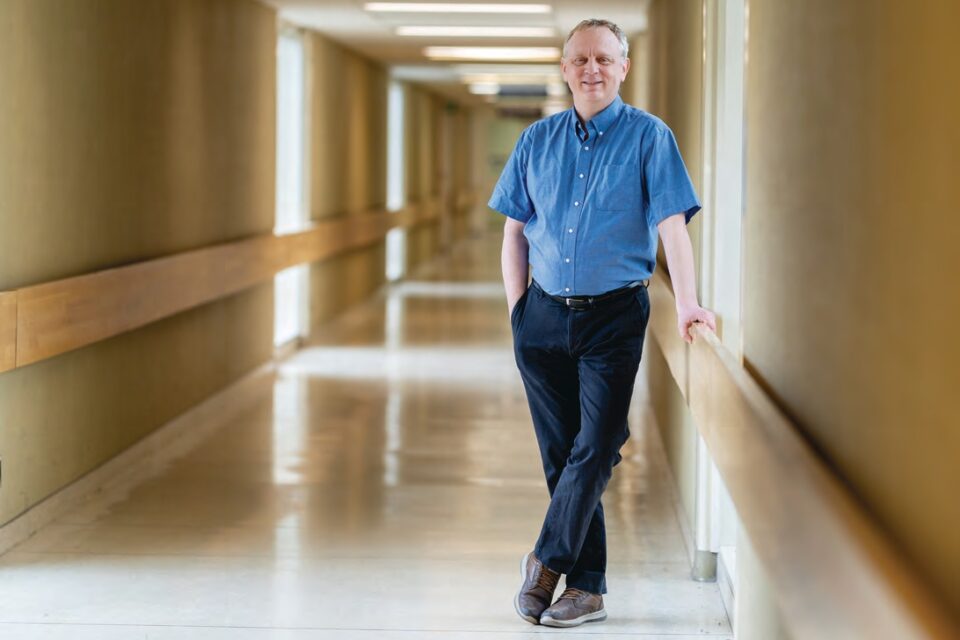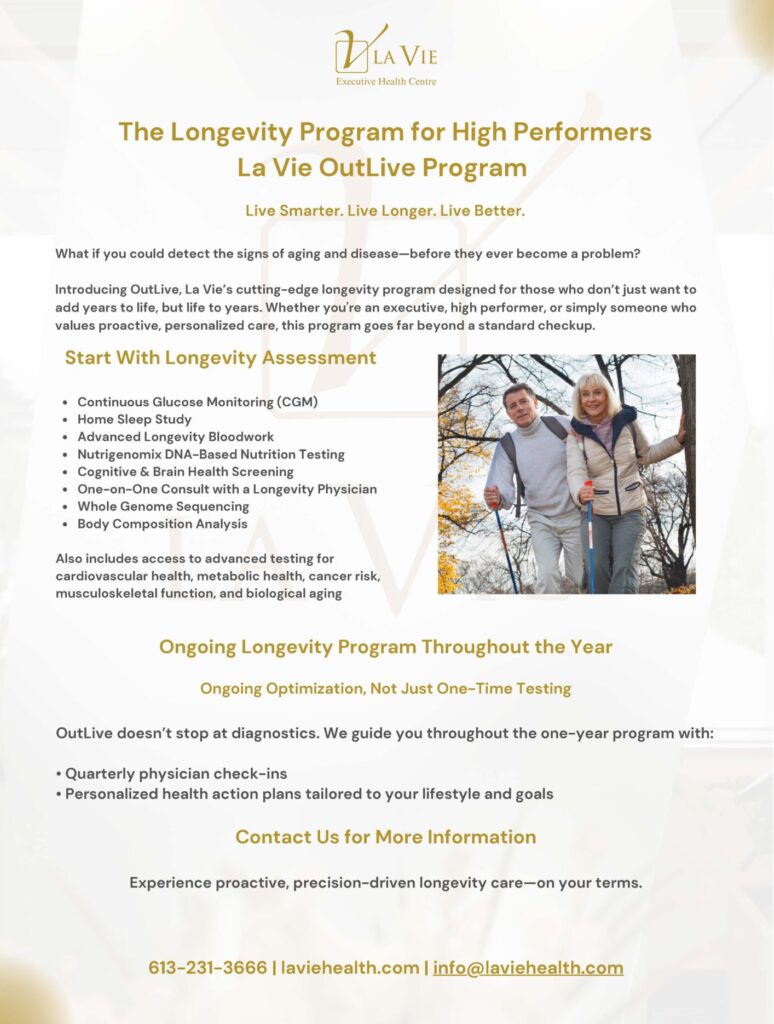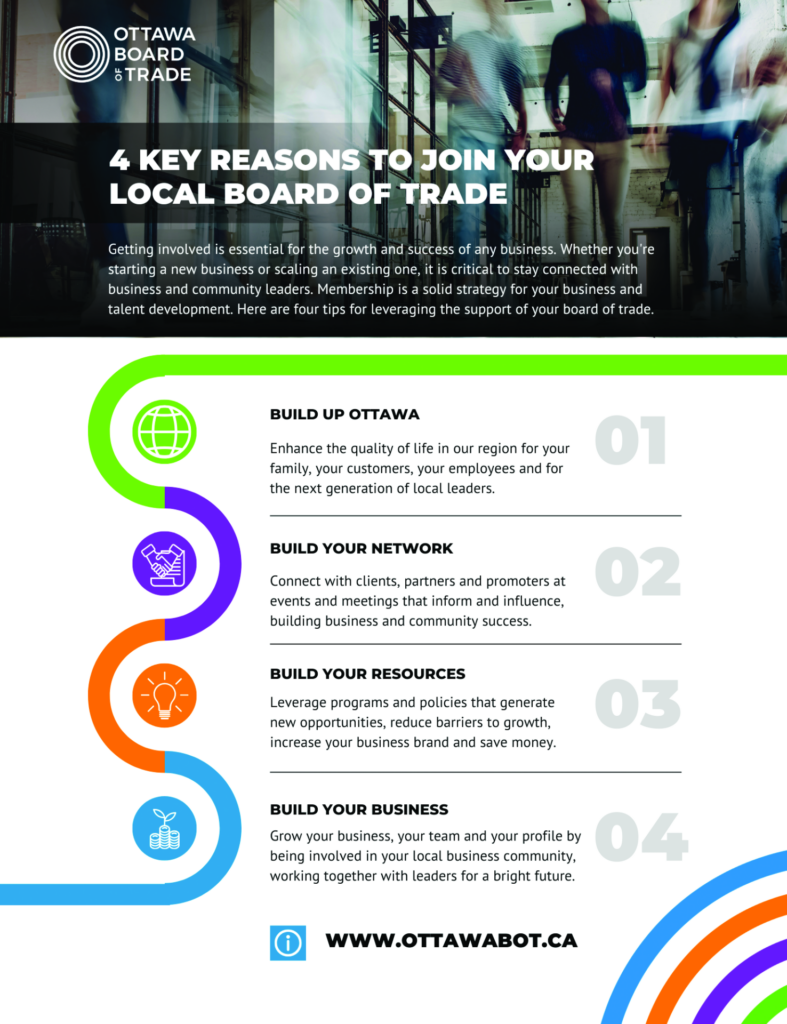University of Ottawa Scaling up Research on Patient Health

Dr. Alain Stintzi. Director, School of Pharmaceutical Sciences at the University of Ottawa
IMAGINE TAKING A health supplement to improve your response to cancer treatment, alleviate the effects of muscular disease or help manage inflammatory conditions. At his lab, in the School of Pharmaceutical
Sciences, part of the University of Ottawa’s Faculty of Medicine, Dr. Alain Stintzi has made it his life’s work to find ways to improve patient care.
With his colleagues, Dr. Stintzi studies the microbiome, the community of microorganisms, like bacteria, fungi and viruses that colonize the gastrointestinal tract. “We are investigating how the microbial community that live in the gut influence the development and progression of human diseases, including inflammatory bowel disease (IBD), Duchenne muscular dystrophy, and glioblastoma, a form of brain cancer,” says Stintzi.
“We have shown that both the composition and the function of the gut microbiome are altered in individuals with certain diseases, suggesting that these changes could serve as biomarkers to help diagnose disease,” he adds.
By analyzing microbiome extracted from stool samples, researchers in their labs can now not only diagnose disease, but also identify biomarkers that predict which patients are most likely to respond to standard treatments. Ultimately this work paves the way for developing tailored compounds like prebiotics and fibres to reshape the composition of patients’ gut microbiome and improve their health.
“We can now develop patient-tailored nutritional approaches that work alongside medical treatments to help patients respond better and feel healthier,” he says.
“By using animal models of Duchenne muscular dystrophy, we have demonstrated a causal link between the composition of the gut microbiome and muscle health. Building on these findings, we are now beginning to design intervention trials in patients with muscular disease to further explore this connection and its potential for treatment,” says Stintzi.
Dr. Stintzi and his colleagues are currently conducting intervention trials for IBD. And they are also in the planning stage for intervention trials in glioblastoma.
They have launched a startup company aimed at bringing their exciting discoveries to market, with the goal of improving health outcomes for patients suffering from a variety of ailments.
Building Better Healthcare Through Research
As one of Canada’s leading research universities, the University of Ottawa is making the largest capital investment in its history to scale up health research initiatives like Dr. Stintzi’s. It’s building the Advanced Medical Research Centre (AMRC), scheduled to open in late 2026, close to the Ottawa Hospital and Children’s Hospital of Eastern Ontario (CHEO).
The seven-story building will promote collaborative research between some of the world’s top scientists and clinicians caring for patients in our public health system. It will feature wet lab space and the Health Innovation Hub, where researchers will be able to interact with industry partners to incubate biotech startups and accelerate discoveries of the next-generation medical treatments and technologies.
“We’re building a large ecosystem in there,” says Dr Julie St-Pierre, a professor in uOttawa’s Faculty of Medicine who also serves as the University’s Interim Vice President, Research & Innovation.
Thanks to its hotbed of talent and cutting-edge infrastructure, the AMRC will fuel innovation that can revolutionize how healthcare is delivered here in the nation’s capital and beyond, and allow the region’s thriving research ecosystem to better compete on a global scale.
St-Pierre says that uOttawa’s biomedical research is currently making advances in several areas of human health, with a critical mass of very strong expertise focused on brain and heart health, including how people develop adverse heart and brain conditions, as well as cancer research.
“I’m a breast cancer researcher. If you think back many years ago, you mostly had chemotherapy and radiotherapy as treatment options. Then research discovered different types of breast cancer and that most often women have hormone sensitive breast cancer,” says St-Pierre. “We now have various options for hormone therapies that drastically improve the treatment and prognosis of breast cancer. This transformation would not have been possible without research,” she stresses.
“The Advanced Medical Research Centre is going to allow us to go to the next step in health innovation and medical research. With its suite of scientific platforms and the Health Innovation Hub, that building is going to be transformative,” she predicts, adding that the scientific platforms are already of great interest for potential startups.

Opening in 2026, uOttawa’s new Advanced Medical Research Centre (AMRC)

“When you have cutting edge technology, you can make breakthroughs that you could not do otherwise,” St-Pierre says.
And by having more startups led by Canadians, this is going to provide solutions that will benefit our country. That’s very important because if there is a next pandemic, or any big outbreak, “we need to develop this resilience and independence and have made-in-Canada solutions,” she stresses.
“Not doing research is like hitting the pause button on progress.” says St-Pierre. “If we are to drive medical advancements that will ensure we have better health outcomes ten years from now and beyond, we need this cutting-edge research today. Today’s research is building tomorrow’s healthcare.”























